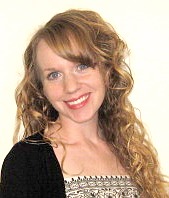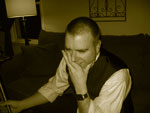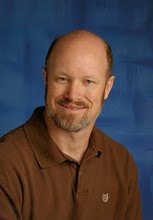Personal Note
Deanna Hershiser
 A few thoughts on writing very personal essays.
A few thoughts on writing very personal essays.
My own view is that, if anything, what is wrong with most memoirs and autobiographical poems is that they don't go far enough in their confessions; they myopically fudge the details, the close nitty-gritty of self-observation. ~ Phillip Lopate, Getting Personal
My essay "Memorial Day" first appeared in Relief Issue 2.3. Recently it was reprinted in the anthology Saying Goodbye, released by Dream of Things. It's a story that no doubt has confused some people -- the writing is likely fine, having been edited capably by Lisa Ohlen Harris, but I tend to get a certain reaction. "You are so brave," I will hear. Which translates in my mind to the unasked, "Why put this out there?" Or something closer to, "Could I, should I, share my greatest failures with the world?"
"Memorial Day" contains my tale of hurting my husband, Tim, in the worst way more than 25 years ago. The story of our near divorce is woven within a weekend of remembering in 2006, when Tim and I returned to the coastal town where our disaster had happened.
For better or worse I'm someone who tells these certain things -- not all of my life's private details, not even very many -- but the intense bits I believe I have learned from. Usually in person it's after I've known you a while. Doing so in writing is a long process; often it feels like bushwhacking a rough trail between my emotion-filled memories and the sense and sensibilities of readers' minds. As creative nonfiction expert Dinty W. Moore says in his book Crafting the Personal Essay, "The private essay hides the author. The personal essay reveals." I don't wish to blather about private issues no one can relate to. Rather, I want to reveal something of the deepest truths that have invaded my being.
The eyes of the me telling my "Memorial" story now view life with a spiritual appreciation that the early-1980s me could only spot as a glimmer. Part of my continuing closure became releasing the setting of my great drama, letting it sink, so to speak, into the ocean. But there's also a part of my ongoing way of life bound up in lessons from this past event. I'm a person of faith. For me that has come to mean putting together all the evidence I can regarding truth and seeing what it adds up to. Before I royally blew it that time in my twenties, I didn't understand what mercy might look like. While I could see others' need for forgiveness, I couldn't grasp my deficit. I was basically good; I made mistakes. But bring push to shove, and, hey, sure -- it's me, remember? -- I always chose the right path, the godly way. Until, of course, I didn't. Excuses no longer held up in my own mind for my actions. I reached a clear fork in the road and to go forward with belief meant accepting that I needed something more.
Would I recommend this form of writing for very many? Not really. I should likely say run from the awkwardness. Turn to fiction; find some creative alternative. It's certainly not a mandate for Christians. The style of "confessional" writing I'm striving to do isn't bound to particular theological perspectives. Though it tends to be about finding wisdom and truth, its focus is individual, existential.
If you can go there, and if you have to, then read and write the very personal. You may find yourself involved in what the amazing nonfictionist Phillip Lopate speaks of when he says, "I am endlessly interested in the wormy thoughts and regrets and excuses and explanations that people have for their behavior. 'Confessional' is, to me, a descriptive term, not a derogatory one....Honesty has been, for me, the one lodestar to which I never stop aspiring in print. I don't say I attain 'honesty,' but the very fact that I try to reach it gives my work, at least to my own eyes, a formal thrust, a dynamic, a topography."
Deanna Hershiser’s essays have appeared in Runner’s World, BackHome Magazine, Relief, and other places. She lives with her husband in Oregon and blogs at deannahershiser.com/stories-glimmer.









